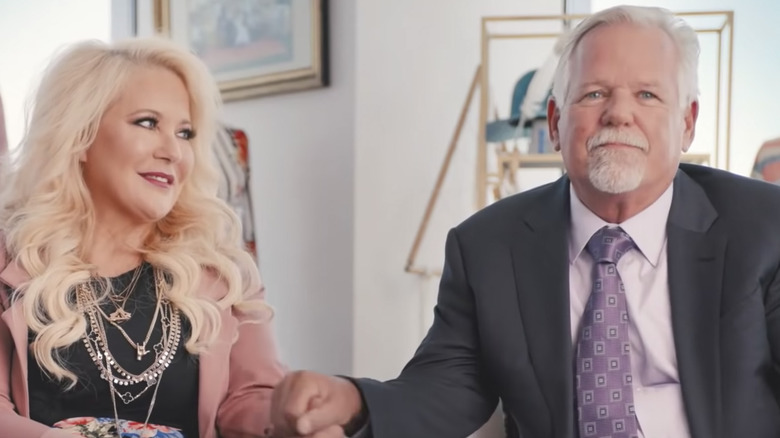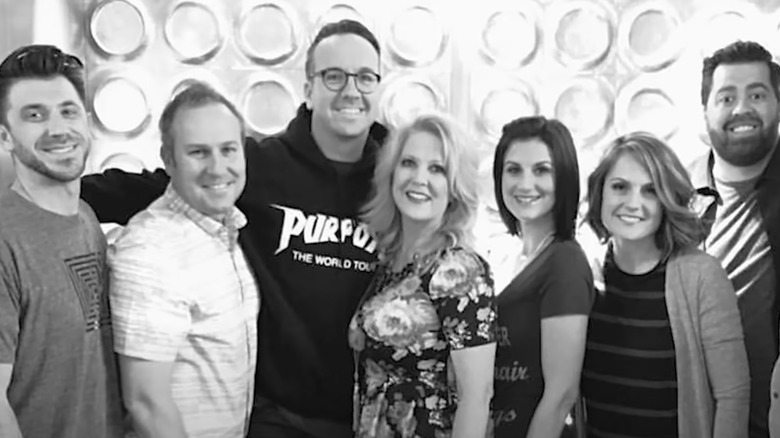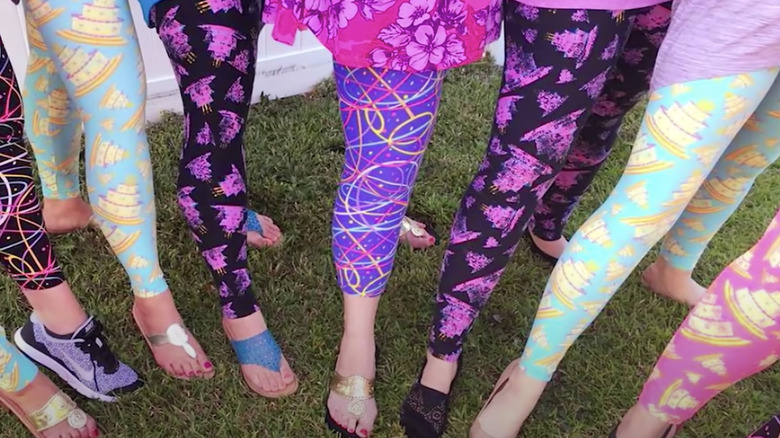The Truth About The LuLaRoe Family
When you see LuLaRoe founders DeAnne and Mark Stidham smiling with delight while talking about their large extended, blended family in the new Amazon Prime docuseries "LulaRich," your mind might spin for a few minutes as they introduce you to their 14 children — both biological and adopted — their children's spouses, and their passel of grandchildren.
Because the couple kept LuLaRoe a family affair, at least at the upper levels of the business, the docuseries introduces you to more and more members of the Stidham clan as it progresses. These family members all had a part in turning LuLaRoe into what it became: a company that grew too big and too fast, preying on women to help them keep the money pouring in.
As DeAnne and Mark had been married to others before, DeAnne brought four biological children into the family along with three adopted children. Mark also brought four biological children into his second marriage, and the pair then adopted three more. And, yes, one of the girls they adopted together did eventually marry one of the boys DeAnne adopted during her first marriage, making the family tree that much more complicated (via Women's Health).
How the Stidhams made LuLaRoe a family affair in every single way
When Mark Stidham realized that his wife, DeAnne's, business venture of selling maxi skirts out of her kitchen and car trunk via personal retailers she would recruit, he wanted in. As the Stidhams explained in "LuLaRich," you have to make sure your husband is involved with your business, as it's all about family — and, sometimes, it needs a man's touch to succeed, even if the product and its retailers are women. (A message they later tried to impress on their retailers.)
Once they decided that their company needed a name, they took inspiration from their three granddaughters, Lucy, Lola, and Monroe, combining parts of each one's name into one tongue-twisting moniker. They then decided that their extended clan also needed to be let in on the business, and many members were given executive roles.
As Women's Health reports, son Kenny became the vice president of sales; son Jordan was put in charge of leadership and culture development; son-in-law Jeff came on as the vice president of finance; daughter Amelia was their photographer; Amelia's husband took on the role of chief marketing officer; son Austin joined the analytics team; and DeAnne's nephew, Sam, was put in charge of event planning.
The Stidham family expanded beyond LuLaRoe
As Mark and DeAnne Stidham explain in "LuLaRich," they both come from Mormon families in which hard work and entrepreneurship were the name of the game. Earlier in their lives, the Stidhams also sold for Amway, one of the first multi-level marketing companies, which gave birth to all the rest.
That gave them the knowledge to build their own MLM, in which at-home retailers — typically mothers — buy inventory from the company to sell on their own. But — and this is what differentiates an MLM company from an illegal pyramid scheme — the retailers were constantly incentivized to recruit more people to sell under them, often making more money this way than through selling clothing. Thus, retailers in the upper echelons of the company received lucrative bonuses in the company's heyday based almost solely on recruitment.
It should then come as no surprise that some Stidham family members were inspired to start their own ventures. According to CBS, several family members founded their own MLMs in 2013, not long after LuLaRoe was incorporated. The children's clothing company Dot Dot Smile was founded by DeAnne's daughter Nicole. DeAnne's twin sister, Diane, founded Honey and Lace, which no longer seems to exist, as of this writing. And DeAnne's niece, Buffy, also wanted to get in on the action and founded Agnes & Dora.
William Keep, dean of the College of New Jersey's School of Business, explained to CBS that family-owned MLMs that become families of MLMs are not an unusual thing. "Family members often get involved in the same MLM, and there are numerous examples of founders or high-level distributors in one MLM going on to create another," he said. "That family members would own multiple MLMs is not surprising at all."


